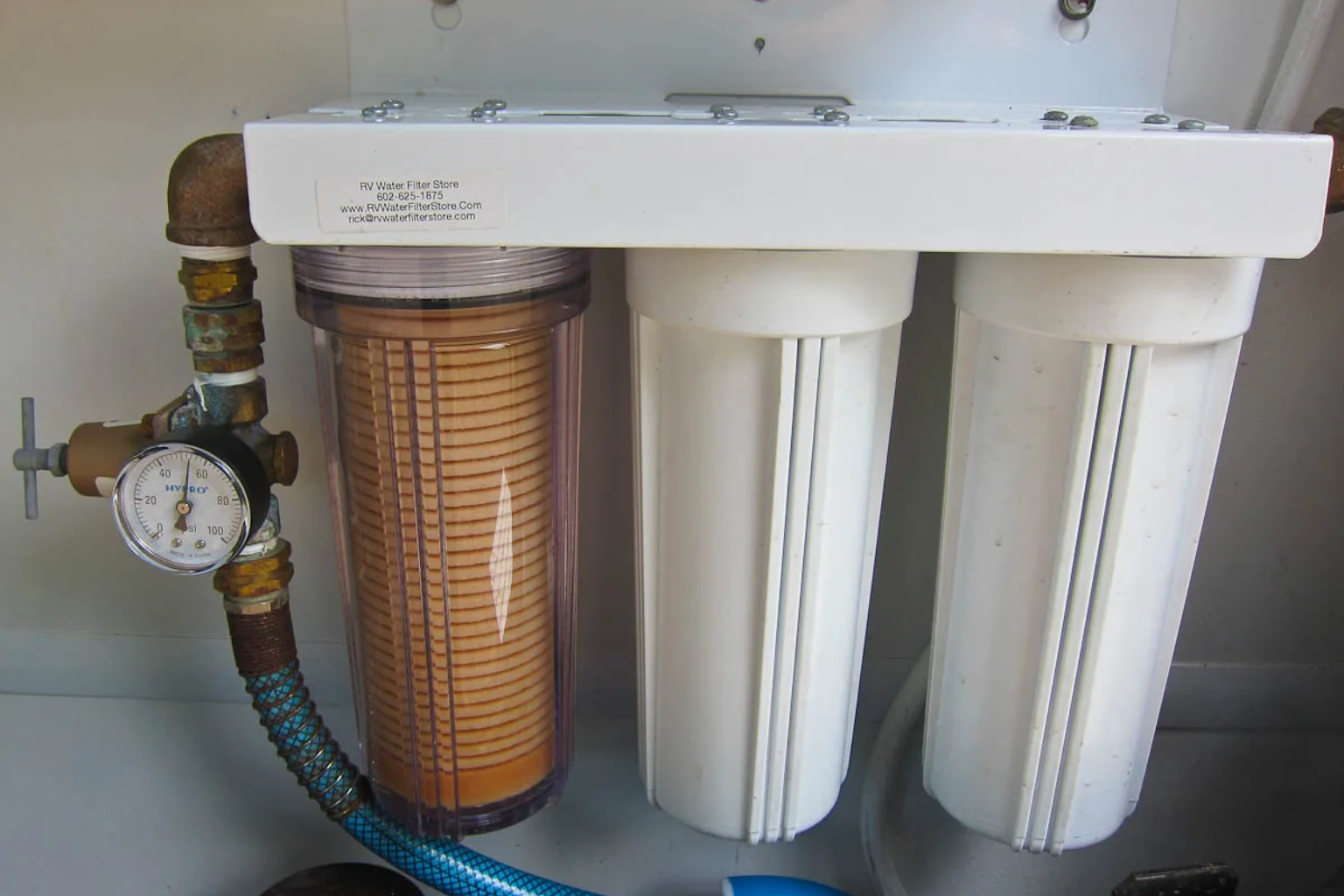If you’ve ever turned on the faucet, filled a glass, and caught that unmistakable whiff of rotten eggs… you know how unsettling it feels. You pause, sniff again, and wonder: is it the glass? The sink? Or is my water actually the culprit? For many households, especially those on well water, this is a daily frustration. The smell comes from hydrogen sulfide gas, and while it isn’t always harmful, it makes drinking, cooking, or even showering feel less than fresh. And honestly, who wants to live with that kind of daily annoyance?
The good news: this problem is solvable. But before diving into solutions, it helps to understand what’s actually happening behind that pungent scent.
Why Does Water Smell Like Sulfur?
The “rotten egg” odor in water is usually caused by hydrogen sulfide gas. This gas forms naturally when organic matter breaks down, or when sulfur-reducing bacteria thrive in groundwater and plumbing systems. Sometimes, the smell shows up only in hot water, because the heat from your water heater gives bacteria and sulfur reactions a little boost. Other times, the odor is strong across the whole house.
That’s where things get tricky: not all sulfur smells are created equal. A faint smell in just one tap may point to plumbing issues, while a strong odor across every faucet is often linked to the well itself or the source water. Either way, no one wants to live with water that tastes like it belongs in a swamp.
First Steps: Testing and Diagnosis
Here’s the part many homeowners skip — and regret later. Before spending money on gadgets or quick fixes, it’s smart to test your water. Local water testing services, or DIY kits, can help determine whether you’re dealing with hydrogen sulfide gas, iron bacteria, or something else entirely.
Why test? Because different problems demand different solutions. Sometimes, the smell can be traced back to your water heater’s anode rod, which reacts with sulfur bacteria. In that case, replacing the rod may solve the problem without a major system overhaul. Other times, the contamination is at the groundwater level, and you’ll need something more robust like a sulfur smell water treatment system designed for whole-house use.
Common Fixes People Try (and Why They Don’t Always Work)
Let’s be honest: most of us try the quick fixes first. Flushing the water heater, pouring bleach into the well, or running bottled water for a while. And yes, sometimes these solutions work temporarily. But more often than not, the smell creeps back after a few days or weeks.
That’s because the root cause isn’t always surface-level bacteria. If hydrogen sulfide is present in your water supply, it won’t go away with a single round of disinfectant. You’ll need a consistent solution — something that doesn’t just mask the problem, but eliminates it at the source.
Long-Term Solutions: Finding the Right System
So, what actually works? The good news is there are several reliable treatment options depending on your water chemistry and budget.
One of the most effective tools is a hydrogen sulfide water filter, typically using catalytic carbon or an oxidizing medium to neutralize the gas. These filters remove the odor before it reaches your faucet, leaving water that’s fresh-smelling and safe to drink.
For heavier cases, aeration systems or chemical injection systems may be needed. These work by introducing air or oxidizing agents that break down hydrogen sulfide molecules before filtration. And in some situations, a combination of filtration and oxidation provides the best results.
What About the Rotten Egg Filter Systems You See Online?
You’ve probably seen plenty of ads claiming to fix your water issues in minutes. Some are legit, others not so much. It’s important to remember that not every product is built for every water source. A rotten egg water filter system that works beautifully for one household may be completely ineffective for another if the underlying water chemistry is different.
That’s why testing your water first, and then matching a solution to the actual results, is so crucial. Think of it like buying shoes: you wouldn’t grab the first pair on the shelf without checking your size.
The Real-Life Benefits of Fixing Sulfur Water
Aside from the obvious — no more pinching your nose every time you turn on the tap — fixing sulfur water comes with plenty of lifestyle perks. Coffee and tea taste better. Showering feels cleaner. Cooking doesn’t carry an odd smell in the steam. Even laundry benefits, since hydrogen sulfide can discolor clothes and leave a faint musty scent.
For families, it also brings peace of mind. Guests won’t wrinkle their noses when washing their hands. You won’t be embarrassed offering someone a glass of water. And most importantly, you can trust that your home’s water supply feels as safe and clean as it should.
A Thoughtful Ending
Here’s the truth: living with sulfur water is frustrating, but it’s not permanent. The smell may feel overwhelming now, but with proper testing, diagnosis, and treatment, it can be fixed. Think of it as investing in the everyday quality of your life. Clean water isn’t just a utility — it’s part of your comfort, your health, and the rhythm of your home.

